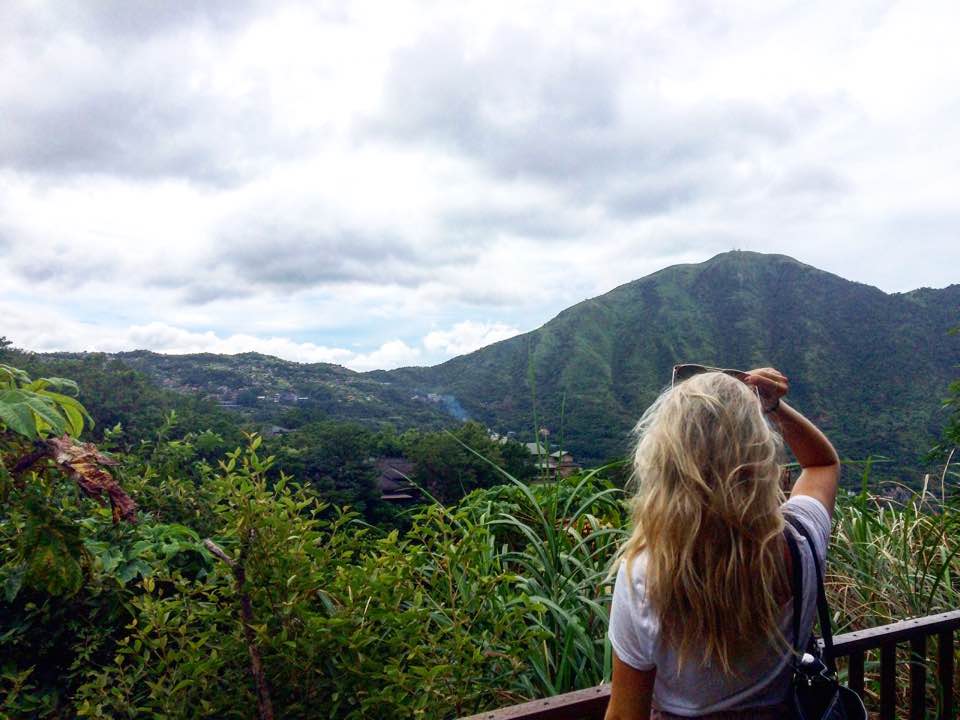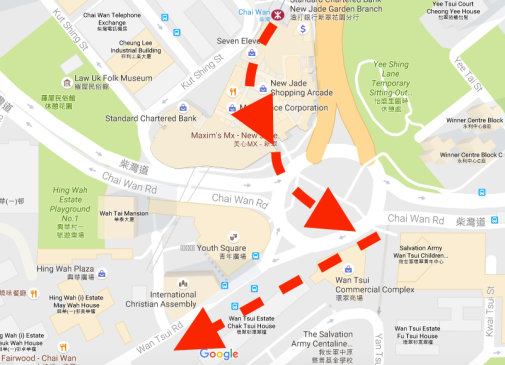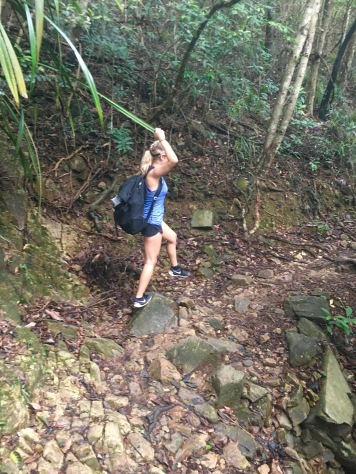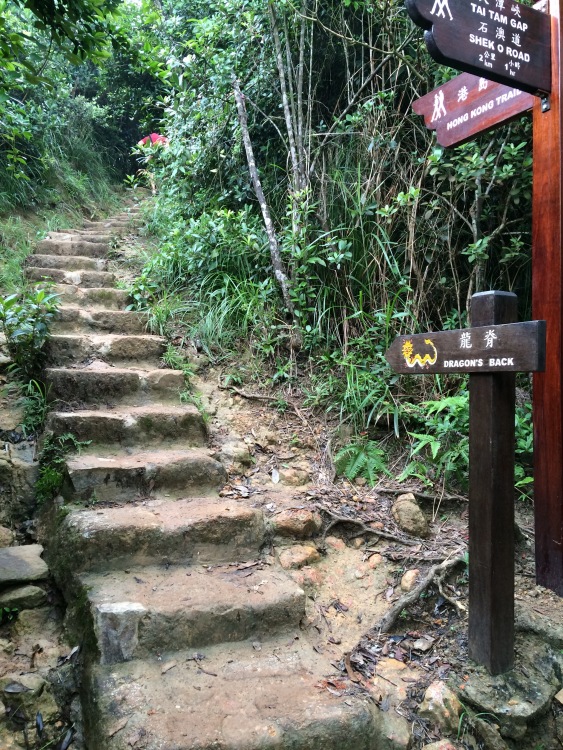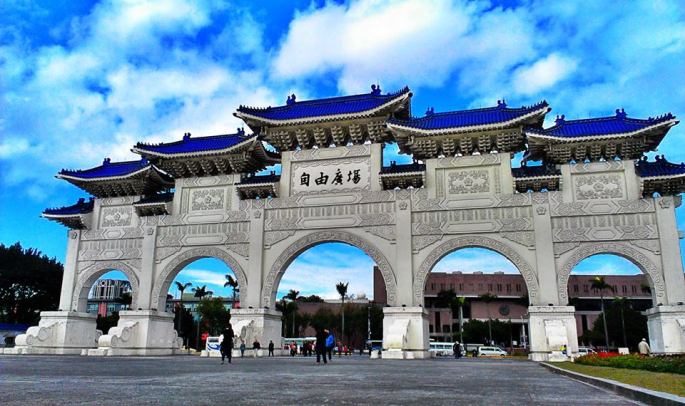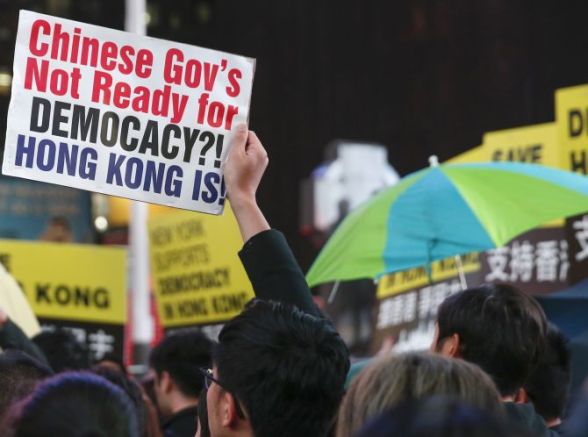I have been extremely fortunate to have grown up with a family who has traveled together to parts of Venezuela, Cuba, Jamaica, Mexico, Dominican Republic, United States of America (RIP), Italy, and our home country of Canada.
Now as a young woman I’ve been given the amazing opportunity to work and live in the country of Taiwan, and since have traveled to Hong Kong, South Korea, and most recently the Philippines.
The traveling I’ve been able to accomplish since living in Taiwan has definitely altered the way I think about and see the world and has only made me want to explore more of it. I strongly believe every young person should travel and spend some time away from home, now let me tell you why:
- Travel teaches you about the world in ways a textbook can’t.
- Sure you’ve read about other countries in one of your global studies or international relations classes in school, but when you actually have the chance to speak and interact with people of the country you are visiting, you learn authentic truths that are often contrary to popular belief. Forming a unique and individual opinion is much more character building then assuming what you’ve read or heard from the news is the complete truth.
- These experiences abroad become imprinted into your brain and this newfound knowledge provides you with a basic understanding of another culture. The town I was raised in is not abundant in diversity, which until this trip helped to further my cultural ignorance. Traveling has helped me become aware of the distinctness of many ethnicities I once naively assumed were similar, something that I believe is so important. Ignorance is NOT bliss people.
- Learning also occurs as you meet the most interesting fellow travellers. Did you know they speak Luxembourgish in Luxembourg? I would have never guessed that until meeting somebody from there! When you travel with new people you meet you exchange valuable cultural knowledge through your conversations. You begin to understand each others cultural norms and customs, which then allows you to see why they react to situations either similarly or differently then yourself. You now understand that what might seem rude to you is simply average behaviour in that person’s country of origin. And you learn about their home and the countries they’ve visited, which makes you realize that…
- There is SO much of the world you never thought of visiting because you’ve never really thought about all there is to see on this fascinating planet. This has made me realize that if I don’t travel now, while I’m young, and begin to discover it, I’ll be far less likely to want to do so once I am older.
2. Travel rewards you with the most unique experiences.
- When you travel to different countries you experience things you could never see or engage in at home. I would have never been able to observe the traditions that take place during the month of Taiwan’s Ghost Festival had I not been here. I likely would have never cared to learn a thing about Hong Kong’s politics had I not been visiting during the time of an important election. Not to mention all of the amazing foods and drinks you never knew you were missing out on!
- The experiences you have often push you to go outside of what you previously considered your norm. In Taiwan they have a delicacy called, “stinky tofu” and my Taiwanese friends told me that if I did not try it, it would be as if I never lived here. So I tried a food I would normally never would. Did I enjoy the taste? Not exactly… but will I remember the time I tried this local cuisine in an authentic Taiwanese restaurant? Absolutely.
3. Travel gives you perspective.
- Often as youth we say the phrase “I’m too poor for that” but we really don’t know what it’s like to be poor compared to say young people in the Philippines, where 26 million Filipinos are considered poor, and 12 million below the poverty line.
- I received a dose of first hand perspective after speaking with local Filipinos (who are the friendliest people) on an island hopping tour. They were so excited and felt so lucky to be there that day as they explained they’d been saving for 6 months to take part in it. The cost of the tour was 1,200 Philippine Pesos, approximately $30 CAD… Have you ever saved so long for something worth so little? I know I haven’t.
- Once you pass through a rural village in this country and see the structures people call their homes, and the conditions they live in every day, you realize calling yourself poor is not acceptable. And once you see what other people go through, it makes you want to find real ways to help poor communities around the world. You wonder how people with so little can be so happy, and you self reflect because of it.
4. Travel makes you more responsible and resourceful
- When visiting a new country I have been surprised with how helpful locals often are with providing directions to tourists. That being said, when traveling you ultimately need to look out for yourself. Traveling has helped me realize the world in fact does not revolve around me. It doesn’t matter if you need to get somewhere to catch a flight, if all of the train tickets are booked, they’re booked.
- Meaning you need to find a solution and plan better for next time. Whether thats downloading a map of the area you know you will be in, or formulating a plan A or B in case things go horribly wrong (because odds are, at some point, they will). In this sense, you learn from your mistakes and you learn QUICKLY.
5. Travel makes you more appreciative
- Vacationing on a budget means staying in hostels aka a room of bunkbeds with complete strangers sharing a small number of bathrooms. Its amazing how inexpensive these places can be (anywhere from $7 to $15 CAD a night) but of course there is a reason as to why.
- It is in these situations, where the accommodation is not luxurious but enough for you to get by, that you grasp how fortunate you are to live the way you do when you’re at home. If there’s one thing that’s for sure, I will do my best to never take hot showers and toilets you can flush with a button for granted again.
- The bittersweet aspect of travel is that at the end of your amazing experience you get to return to your regular lifestyle, and although that place remains the same, you will have grown in some way. For me this place currently is Taipei, Taiwan and I feel extremely fortuitous to have chosen a city that has become my second home. While I travel I miss the clean and busy streets filled with kind people and yummy foods.
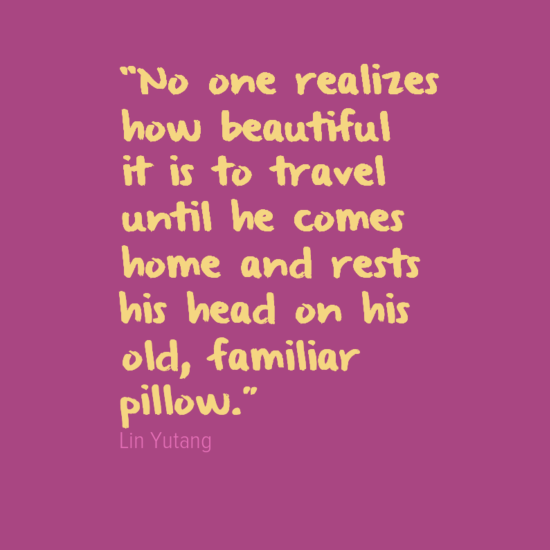
One travel lesson that especially resonates with me is not to assume I am guaranteed anything. This principle carries true to many aspects in life but serves as a reminder that we are never guaranteed old age. This begs the question: why wait until you’re older to travel? Why wait until you have more serious obligations and responsibilities to deal with? Maybe you’ll retire later than the average person, but you also will have seen and experienced so many different things!
Taking time off for travel seems to have a negative connotation in North American society. Whether we’d like to admit it or not, a stigma does exist, as often people are perceived to be lazy or crazy. I don’t believe this reaction to be valid because by traveling you are making the effort to learn so much more than you could ever learn from studying, working, or remaining in one place. You also become a person of higher global understanding, something our world needs now more than ever.
Of course we have responsibilities in life, we have to complete our education, pay off our debts, take care of sick family and friends, but when the time in your life allows for it, traveling needs to be at the top of your priority list.
And so fellow millennials (yes I’m looking at you), instead of buying the newest sports jersey, or Kylie Jenner lip kit, I urge you to save your money. Put it towards something that will continue to repay you for the rest of your life, and develop you into a wiser, happier, more resourceful, and more grateful individual.
I don’t know about you but I refuse to live a life that I reflect upon and wish that I had seen more, done more, and ultimately LIVED more.

PSA: The definition of young in this article is not unilateral, if you are in good health to travel, and aren’t bound to one location, who cares what your age in physical years may be, I say it’s never too late to get out there and explore!
